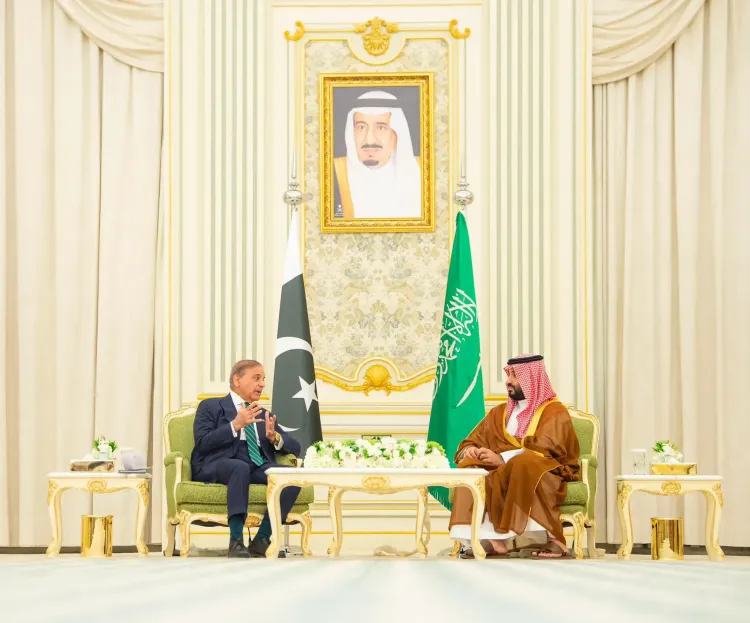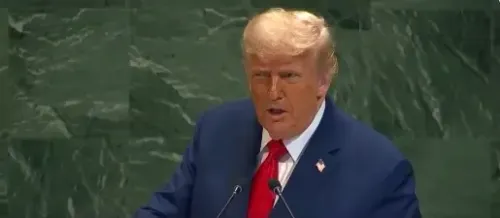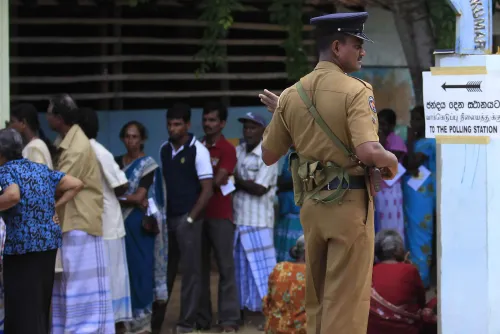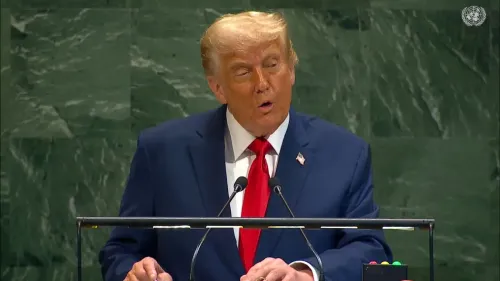Does the Saudi Arabia-Pakistan Pact Highlight an Asymmetric Alliance?

Synopsis
Key Takeaways
- Defence agreement between Saudi Arabia and Pakistan highlights an asymmetric alliance.
- Pakistan may provide military support without equal reciprocation from Saudi Arabia.
- Economic benefits for Pakistan could come from Saudi investments.
- The pact is seen as a move against diminishing US influence in the region.
- Both North Korea and Pakistan leverage military strength for support from resource-rich allies.
Toronto, Sep 23 (NationPress) A recent report has shed light on the defence agreement forged between Saudi Arabia and Pakistan, as well as the strategic partnership inked between Russia and North Korea in 2024. The analysis reveals an imbalance in these agreements, where the so-called 'junior partners', North Korea and Pakistan, are expected to provide military assistance without equivalent support from their 'senior partners', Russia and Saudi Arabia.
On September 17, a defence pact was finalized in Riyadh stating that any act of aggression against either nation would be considered an act against both. Pakistan’s Defence Minister Khawaja Asif indicated to the media that the agreement could allow Saudi Arabia access to Pakistan's nuclear program if needed.
This pact is seen as beneficial for Pakistan, promising economic relief through Saudi investments that could ease Islamabad’s chronic balance-of-payments issues. Politically, it reinforces Riyadh's commitment to Pakistan amidst its balancing act between the US, China, and the broader Muslim world. However, the expectations appear skewed towards Pakistan, which has previously sent troops to Saudi Arabia during crises, including the 1979 Grand Mosque seizure and conflicts in Yemen. In a dire situation, Pakistan might extend its nuclear umbrella to Saudi Arabia, complementing conventional forces. On the flip side, Saudi Arabia's reciprocal actions may be limited,” wrote Nitin J Ticku in an opinion piece for The EurAsian Times.
Experts cited in the report describe this agreement as more symbolic than substantial, aimed at countering the diminishing influence of the US in the Middle East rather than establishing a framework for mutual sacrifice.
If Pakistan were to encounter a significant threat—such as an escalation along the Line of Control with India—Saudi Arabia's response would likely be restricted to diplomatic support or financial aid, rather than military intervention. The similarities between the pacts of Russia-North Korea and Saudi-Pakistan are striking, illustrating a pattern of asymmetric alliances where junior partners shoulder the heavier burdens. Both North Korea and Pakistan, with struggling economies yet formidable militaries, utilize their strength to gain support from resource-rich allies,” Ticku remarked.
Russia relies on military supplies from Pyongyang to maintain its war efforts, while Saudi Arabia seeks a nuclear deterrent from Islamabad against Iran and Israel, primarily offering economic aid in return. This relationship mirrors Cold War-era alliances, like that of the US and South Korea, but with an inverted dynamic: the 'senior' partner (Russia/Saudi) dictates terms from a position of power, leaving the junior partner vulnerable.









